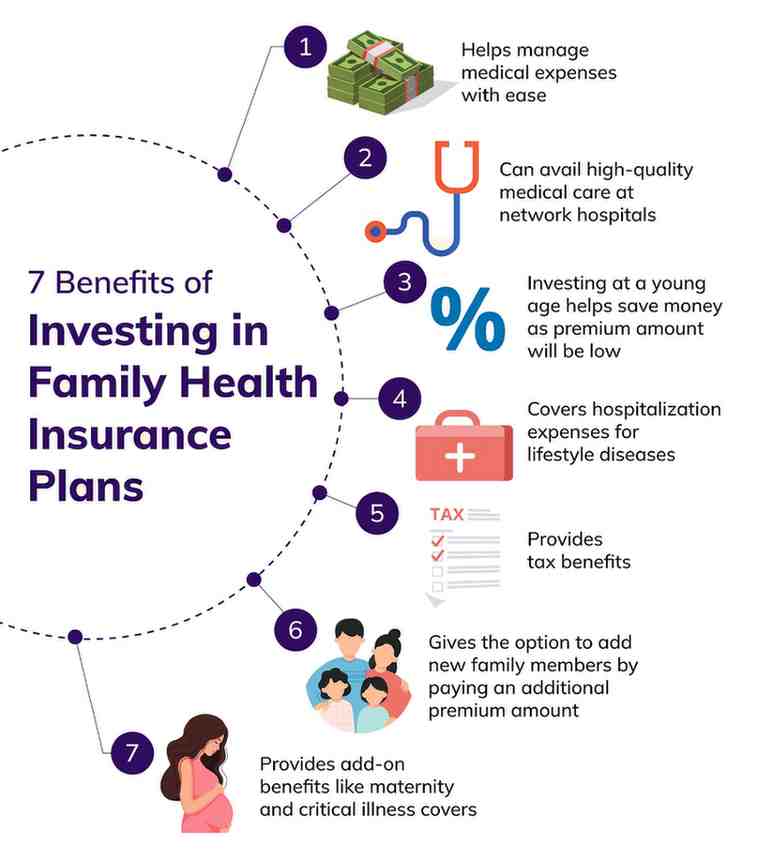About Health Insurance
Health insurance is your safety net for unexpected medical expenses. Health issues and accidents can happen at any age, not just in old age.
Imagine suddenly facing a costly medical treatment you hadn't planned for. Healthcare costs are soaring, making it hard to cover surprise medical bills. That's where health insurance comes in.
You pay regular premiums, which can be monthly, quarterly, half-yearly, or yearly, to the insurance company for coverage.
Here's how it works: When you have health insurance, the company helps with medical bills by either paying the hospital directly or reimbursing your expenses.
The best part? Health insurance is flexible, covering a wide range of medical conditions. Some plans even cover over 80 surgeries and 30 critical illnesses.
So, in those unexpected moments, health insurance can be a lifeline. If you have a large family to care for, consider getting coverage for everyone. It ensures protection when you need it most.
Features and Advantages of Health Insurance Policy
Certainly, here's the information broken down with line breaks for easy readability:
Benefits of Health Insurance:
> You can get medical treatment in good hospitals without worrying about the cost.
> It helps during medical emergencies, even when you don't have much money.
Specialized Treatment:
> If you have a health problem that needs expensive treatment, health insurance can help.
> It's especially useful when you need treatment in specialized hospitals.
Cashless Treatment:
> A great feature is "cashless treatment."
> This means the insurance company pays the hospital directly, so you don't have to pay first and then get reimbursed.
Key Features of Health Insurance:
> It covers expenses before and after your hospital stay.
> You can get treatment without paying cash if the hospital is in your insurance plan.
Different Plans:
> There are different insurance plans to choose from.
> Some plans cover your medical costs, both before and after hospitalization.
> There are also plans for serious illnesses like cancer or heart problems.
> Plans can even cover health issues you had before getting the insurance.
Family Coverage:
> You can cover your whole family under one policy.
> Each family member can have a different coverage amount.
> If one family member has a costly treatment, everyone's coverage can be used to help.
Coverage for Senior Citizens:
> Some plans cover medical expenses for people up to 65 years old.
> Remember, health insurance is like a safety net for your medical expenses.
> It helps you get the care you need without worrying too much about the cost, whether it's for a regular check-up or a serious illness.

Importance of Health Insurance in India
With the rising costs of medical treatments, having Health Insurance plans is extremely important to cover unexpected medical expenses.
Here’s why Health Insurance is crucial:
- Health Insurance covers all your medical bills.
- It ensures you’re ready for any sudden medical crises.
- These insurance policies have low premiums and offer financial protection during medical emergencies.
- Claiming benefits is straightforward and trouble-free.
- The likelihood of your claim being denied is rare unless there’s a valid reason.

Frequently Asked Questions
To get cashless treatment, go to a hospital in the insurance network. Before you’re admitted for planned treatment, ask the insurance company for approval 48 hours in advance. In emergencies, request approval within 24 hours of admission. Then, the insurance company will handle the expenses directly.
Yes, Health Insurance covers pre-existing illnesses, but there’s usually a waiting period, typically 2 to 4 years. Some policies have shorter waiting periods, so if you want coverage for pre-existing conditions, choose one with a shorter wait.
When making a claim, you’ll need to provide your ID, hospital bills, health card, and a claim form. For cashless treatment, also submit the insurance company’s pre-authorization to the TPA.
Before getting Health Insurance, understand how claims are processed and how long it takes. Check if the insurance offers cashless treatment, so you don’t have to pay medical bills upfront. Avoid policies that only reimburse expenses; choose ones with cashless settlement.

